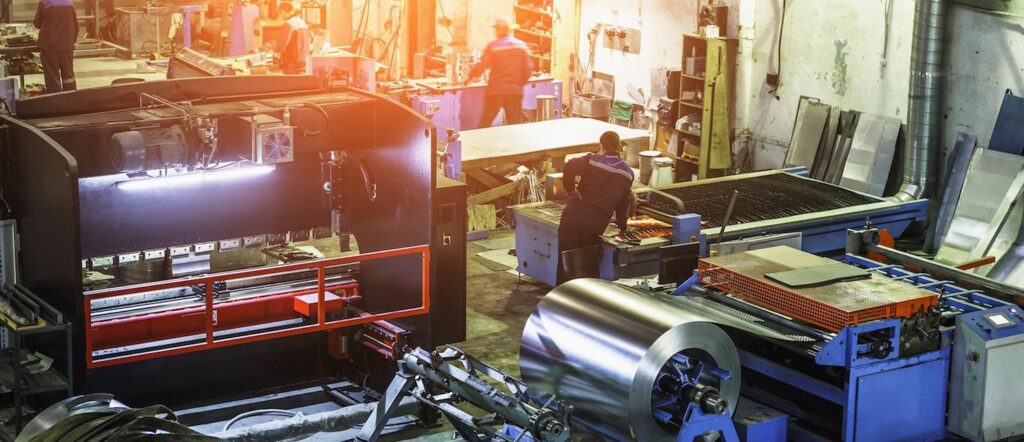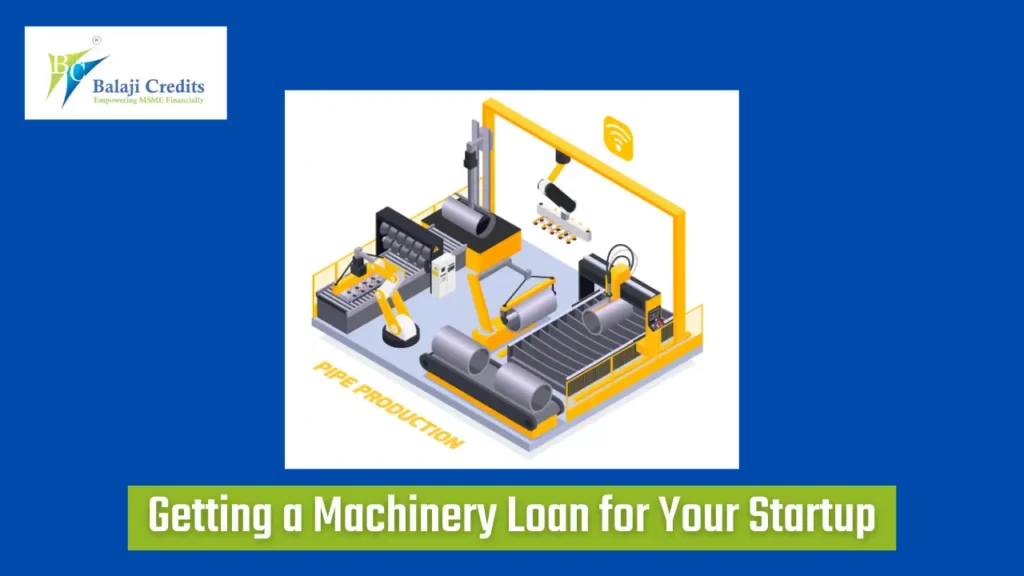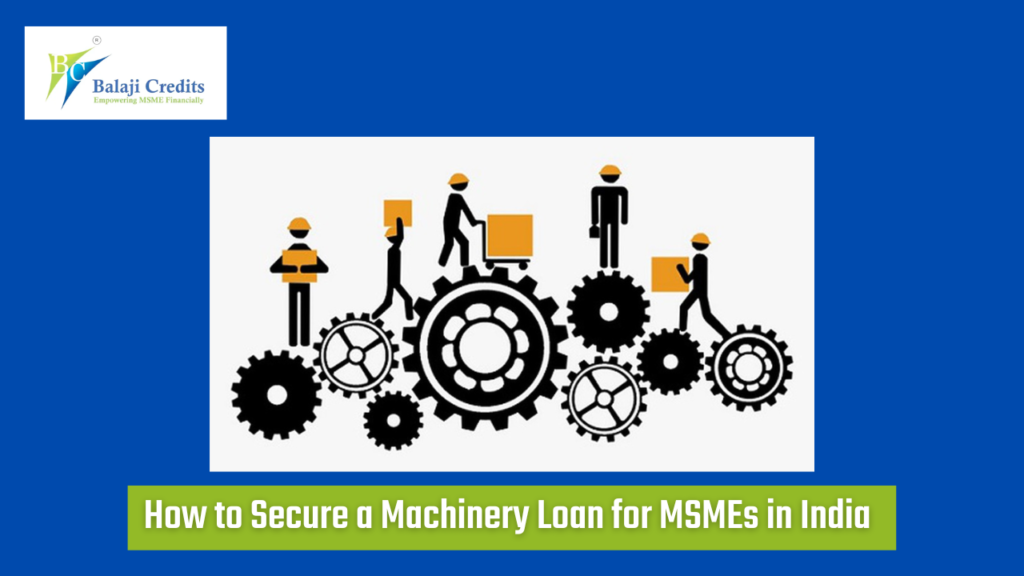Starting a new business requires careful planning, strategic decision-making, and often significant financial investment. For many startups, acquiring machinery is a critical step towards establishing operations and achieving growth. However, purchasing machinery outright can be financially burdensome, especially for new businesses with limited capital. In such cases, machinery loans offer a viable solution, enabling entrepreneurs to acquire the necessary equipment while conserving their cash flow. But before diving into a machinery loan agreement, entrepreneurs must carefully evaluate various factors to ensure the loan aligns with their business goals and financial capabilities. Here are eight important considerations entrepreneurs should keep in mind when seeking machinery loans for their startups:
People from different parts of Maharashtra who also read about Factors Entrepreneurs Must Consider When Taking Machinery Loans for Startups
Table of Contents
ToggleAssessment of Machinery Needs:
Before applying for a machinery loan, entrepreneurs must conduct a thorough assessment of their equipment requirements. They should evaluate the type of machinery necessary for their operations, considering factors such as production capacity, technology requirements, and scalability.
By understanding their precise needs, entrepreneurs can avoid overcommitting to loans for equipment that may not be essential for their business’s immediate or future growth.
Budgetary Constraints:
Every business operates within budgetary constraints, especially startups. Entrepreneurs must assess their financial capacity to repay the loan, taking into account factors such as existing expenses, projected revenue, and cash flow forecasts. It’s crucial to choose a machinery loan amount and repayment schedule that aligns with the business’s financial capabilities to avoid defaulting on payments and risking financial instability.
Interest Rates and Terms:
Entrepreneurs should compare interest rates and loan terms offered by various lenders when exploring machinery loan options. Lower interest rates and flexible repayment terms can significantly reduce the overall cost of borrowing and ease the financial burden on the business. Additionally, entrepreneurs should pay attention to hidden fees, such as processing charges or prepayment penalties, which can affect the total cost of the loan.
Collateral Requirements:
MSME machinery loans often require collateral to secure the financing. Entrepreneurs must carefully evaluate the collateral requirements set by lenders and assess their ability to meet them. Collateral can include business assets, property, or personal guarantees, so entrepreneurs should understand the implications and risks associated with pledging assets to secure the loan.
Creditworthiness and Financial History:
Lenders evaluate the creditworthiness of borrowers before approving loan applications. Entrepreneurs should review their credit reports and financial history to ensure accuracy and address any discrepancies or issues that may impact their credit score. A strong credit profile increases the likelihood of loan approval and may lead to more favorable loan terms, including lower interest rates and higher borrowing limits.
Loan Repayment Flexibility:
Startups often experience fluctuations in cash flow, especially during the initial stages of operations. Entrepreneurs should seek machinery loans that offer flexible repayment schedules, allowing them to adjust payments according to their business’s financial performance. Interest-only payments or deferred repayment plans can provide breathing room during lean periods and help prevent financial strain on the business.
People from Nagpur, Pune and other parts of Maharashtra who also read about Factors Entrepreneurs Must Consider When Taking Machinery Loans for Startups
Impact on Cash Flow and Profitability:
Acquiring machinery through a loan affects the business’s cash flow and profitability. Entrepreneurs must analyse the impact of loan repayments on their cash flow projections and assess whether the investment in machinery will generate sufficient returns to cover borrowing costs and contribute to overall profitability. It’s essential to balance investing in necessary equipment and maintaining healthy cash reserves for day-to-day operations and emergencies.
Long-Term Growth Strategy:
Machinery loans represent a significant investment in the business’s long-term growth and sustainability. Entrepreneurs should align their equipment acquisition strategy with their broader business objectives and growth plans. Considerations such as future expansion, technological advancements, and market trends should inform decisions regarding the type and capacity of machinery financed through loans. A well-thought-out equipment acquisition strategy positions the business for future success and scalability.
Final words
The decision to acquire machinery through loans is a pivotal one for entrepreneurs embarking on the journey of building their startups. While machinery loans offer a pathway to acquiring essential equipment without exhausting initial capital reserves, the process demands careful consideration of various factors to ensure a sound financial footing and long-term viability.
Firstly, assessing machinery needs lays the foundation for a targeted and efficient procurement process, ensuring that investments align closely with operational requirements and growth objectives. Secondly, entrepreneurs must navigate budgetary constraints judiciously, balancing the need for equipment acquisition with the imperative of maintaining financial stability and sustainability.
Moreover, attention to interest rates, loan terms, and collateral requirements is paramount, as these factors significantly influence the overall cost of borrowing and the level of risk associated with the loan agreement. A thorough understanding of creditworthiness and financial history enhances the chances of securing favourable loan terms and mitigates the risk of potential obstacles in the approval process.
Furthermore, flexibility in loan repayment schedules is indispensable for navigating the dynamic nature of startup finances, allowing entrepreneurs to adapt to fluctuations in cash flow and minimize financial strain during lean periods. Equally crucial is the diligent assessment of the impact on cash flow and profitability, ensuring that machinery investments contribute meaningfully to the business’s bottom line and long-term growth trajectory.
Finally, aligning equipment acquisition strategies with broader business objectives and growth plans is essential for positioning the startup for success in a competitive market landscape. By considering factors such as future expansion, technological advancements, and market trends, entrepreneurs can make informed decisions that support sustainable growth and scalability.
In essence, the process of acquiring machinery loans for startups demands a comprehensive and strategic approach, guided by a deep understanding of the business’s needs, financial capabilities, and growth aspirations. By meticulously evaluating these crucial factors, entrepreneurs can navigate the complexities of machinery financing with confidence, setting the stage for a thriving and resilient venture in the ever-evolving business landscape.
Click here if you want to speak to our financial expert.





